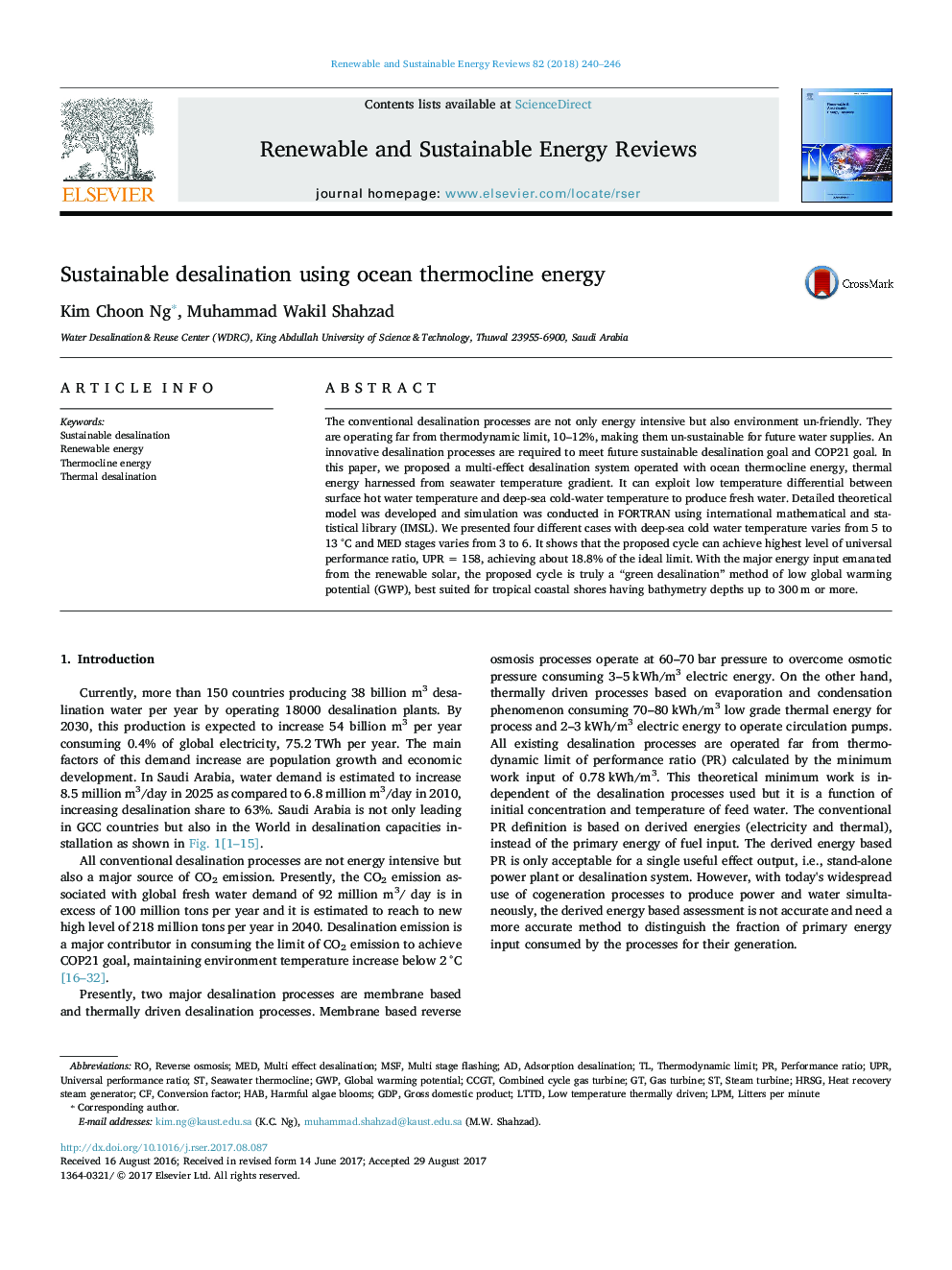| Article ID | Journal | Published Year | Pages | File Type |
|---|---|---|---|---|
| 5481865 | Renewable and Sustainable Energy Reviews | 2018 | 7 Pages |
Abstract
The conventional desalination processes are not only energy intensive but also environment un-friendly. They are operating far from thermodynamic limit, 10-12%, making them un-sustainable for future water supplies. An innovative desalination processes are required to meet future sustainable desalination goal and COP21 goal. In this paper, we proposed a multi-effect desalination system operated with ocean thermocline energy, thermal energy harnessed from seawater temperature gradient. It can exploit low temperature differential between surface hot water temperature and deep-sea cold-water temperature to produce fresh water. Detailed theoretical model was developed and simulation was conducted in FORTRAN using international mathematical and statistical library (IMSL). We presented four different cases with deep-sea cold water temperature varies from 5 to 13 °C and MED stages varies from 3 to 6. It shows that the proposed cycle can achieve highest level of universal performance ratio, UPR = 158, achieving about 18.8% of the ideal limit. With the major energy input emanated from the renewable solar, the proposed cycle is truly a “green desalination” method of low global warming potential (GWP), best suited for tropical coastal shores having bathymetry depths up to 300 m or more.
Keywords
GWPHRSGCCGTHABMSFLPMUPRReverse OsmosisRenewable energyMEDconversion factorSteam turbineGas turbineCombined cycle gas turbineGross domestic productGDPThermodynamic limitHarmful algae bloomsHeat recovery steam generatorPerformance ratioAdsorption desalinationThermal desalinationSustainable desalinationglobal warming potential
Related Topics
Physical Sciences and Engineering
Energy
Renewable Energy, Sustainability and the Environment
Authors
Kim Choon Ng, Muhammad Wakil Shahzad,
